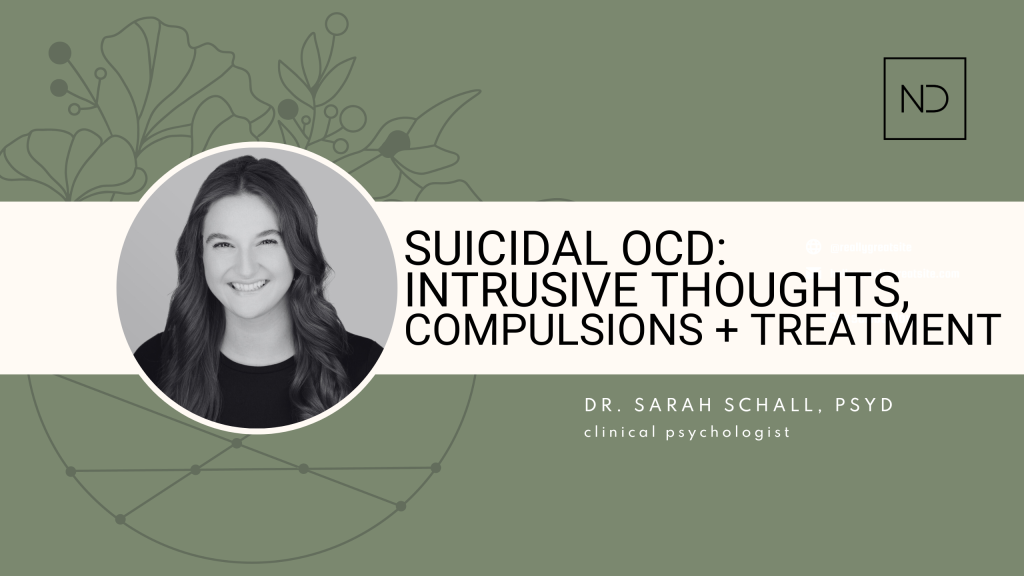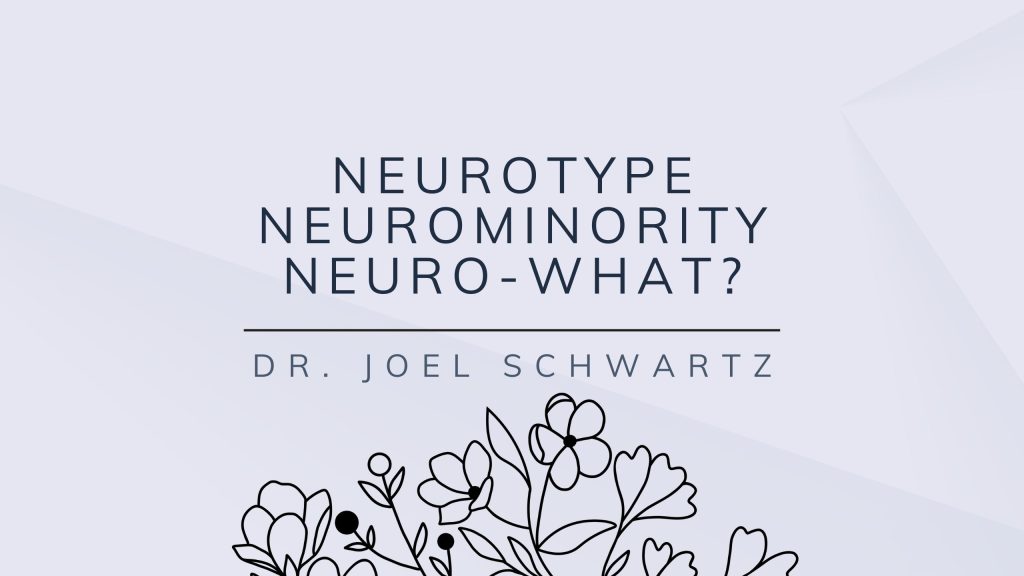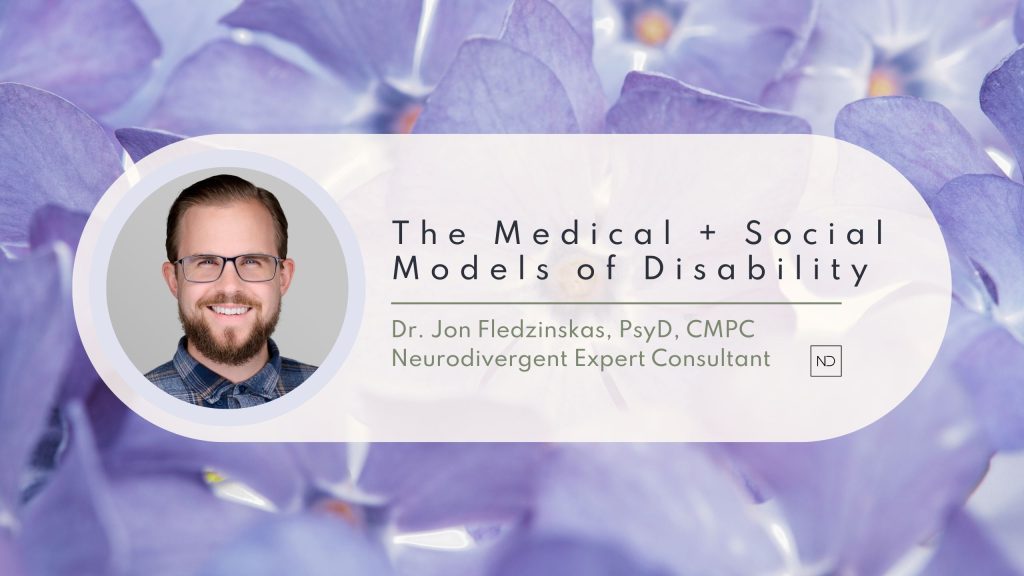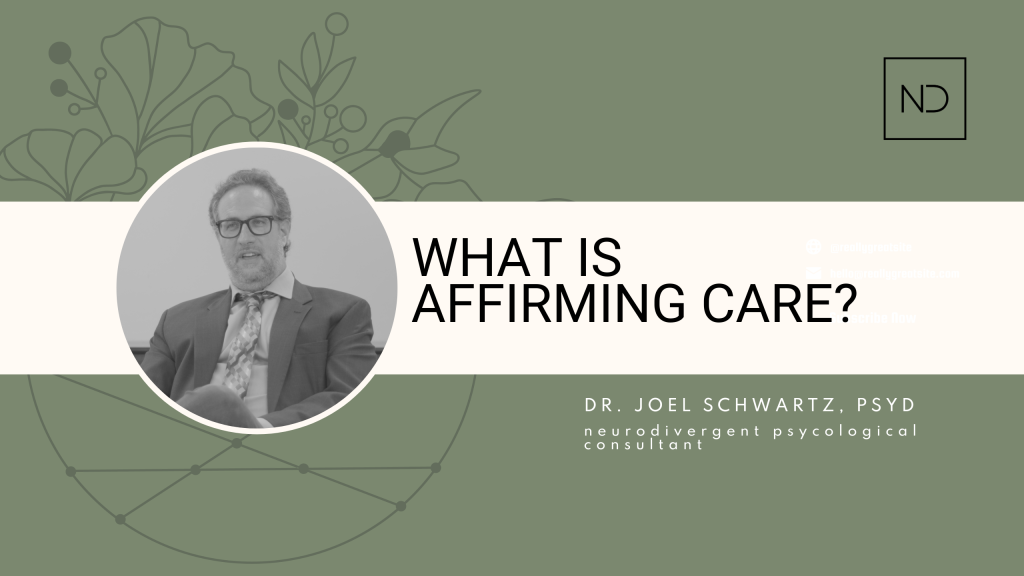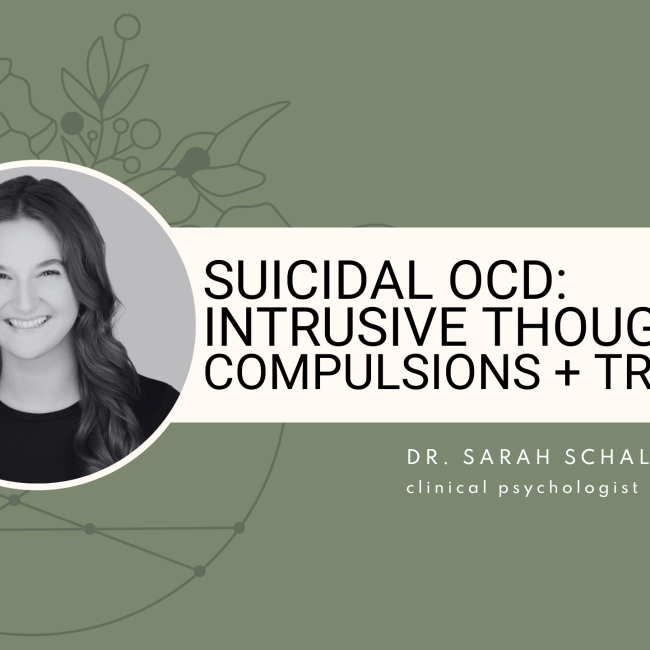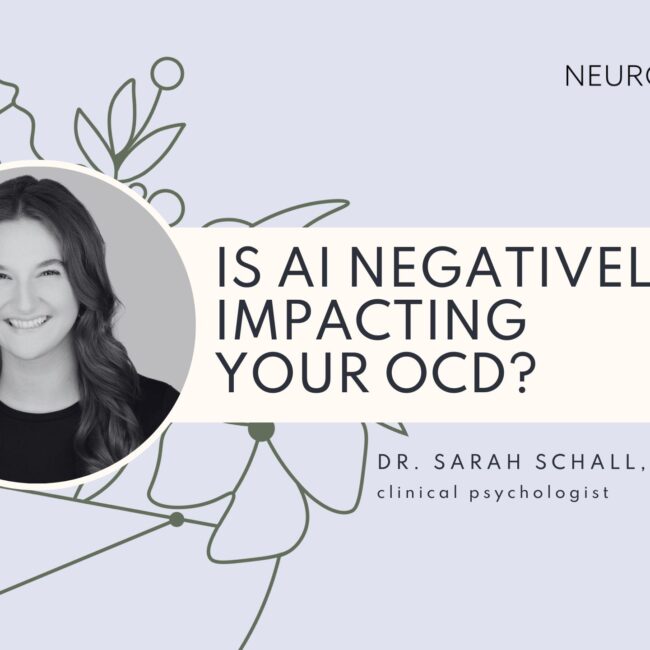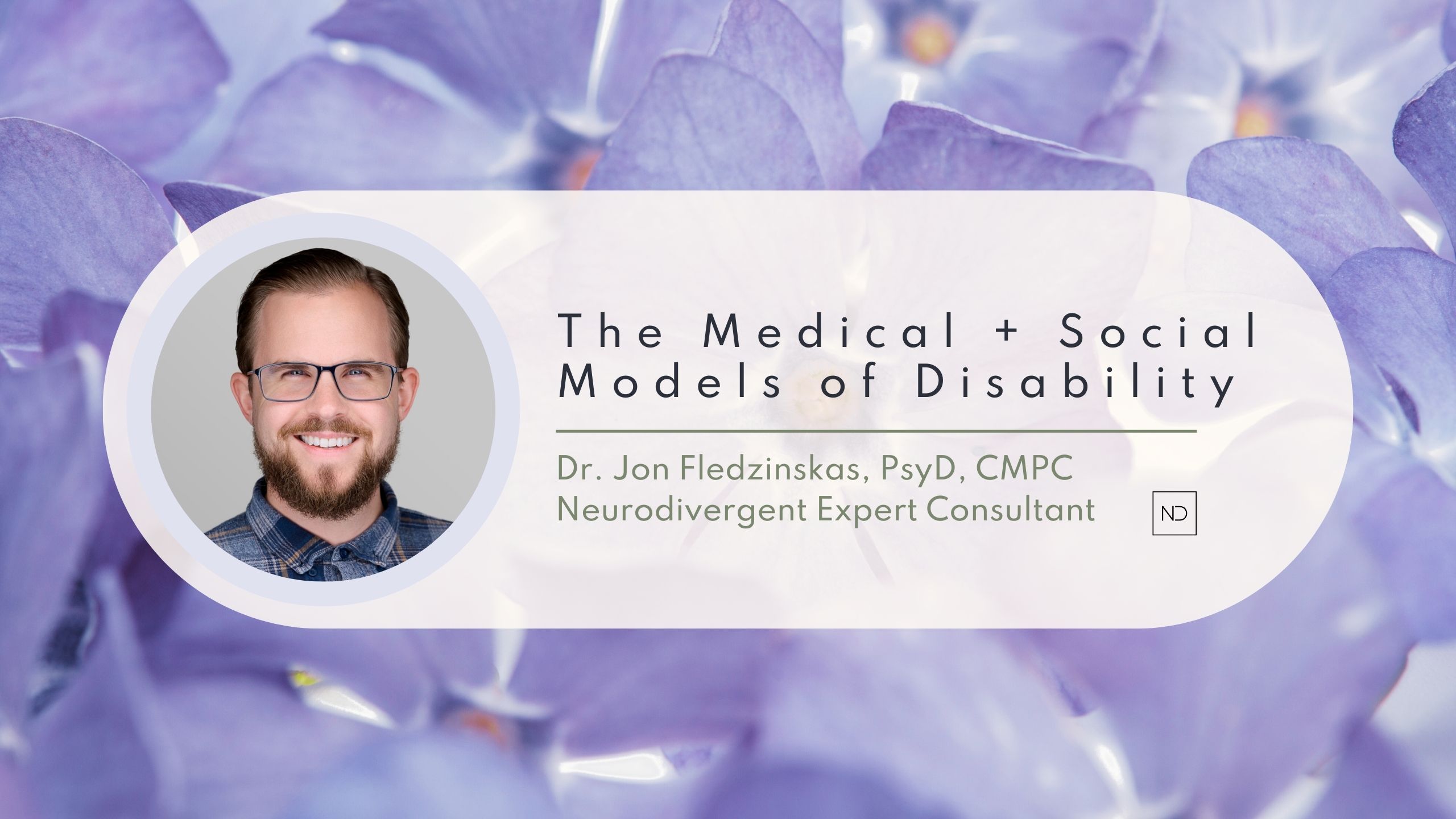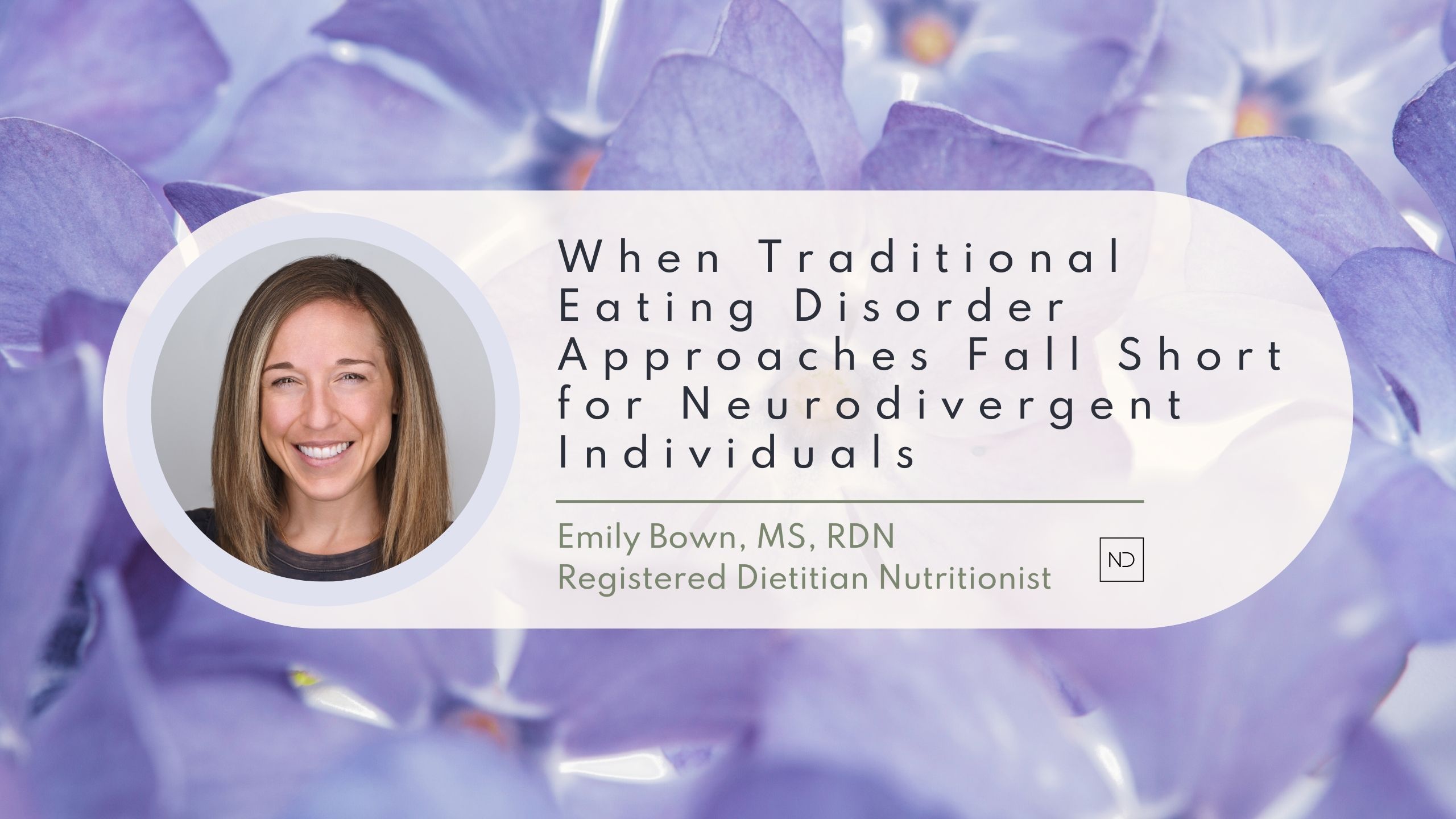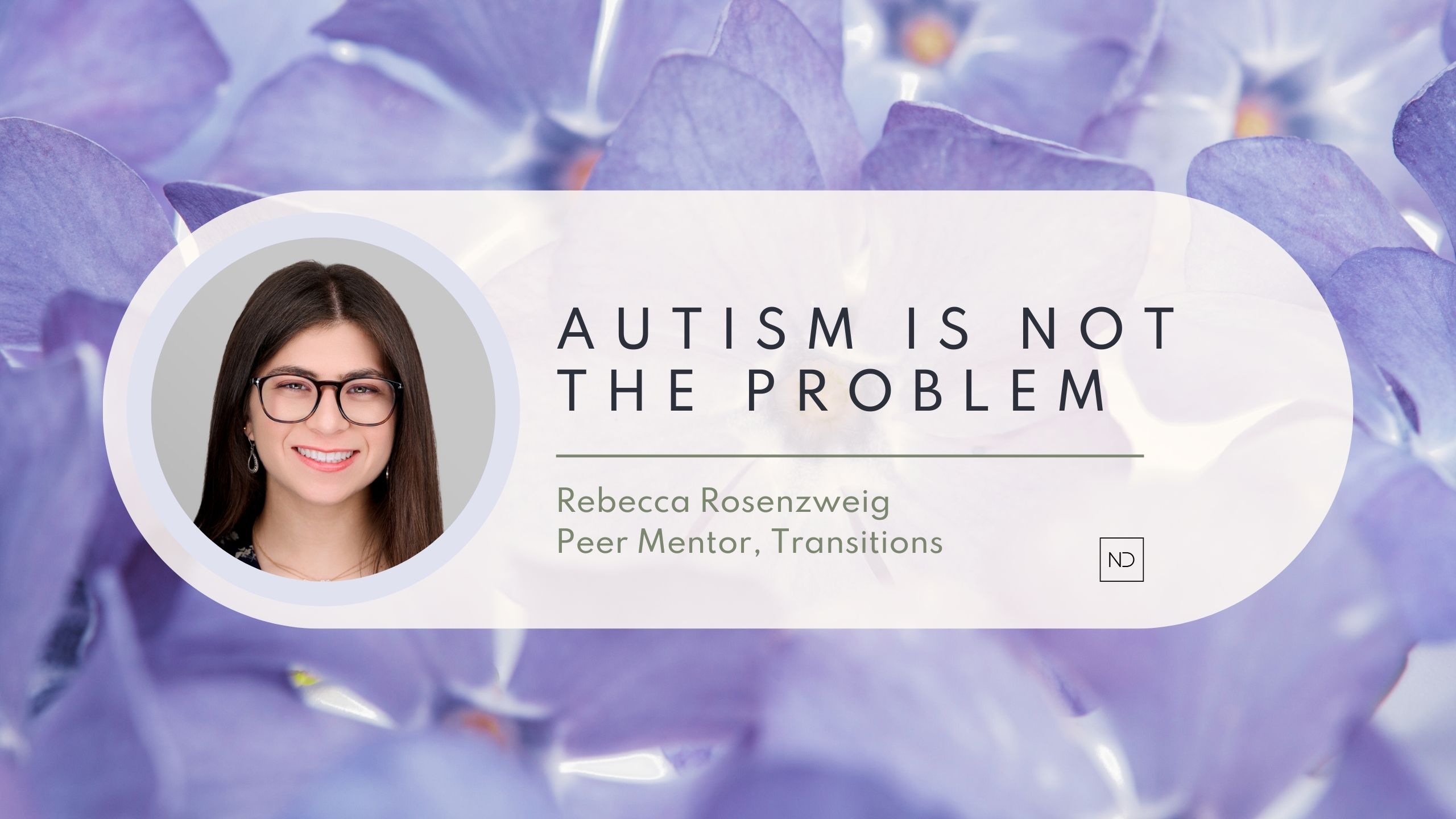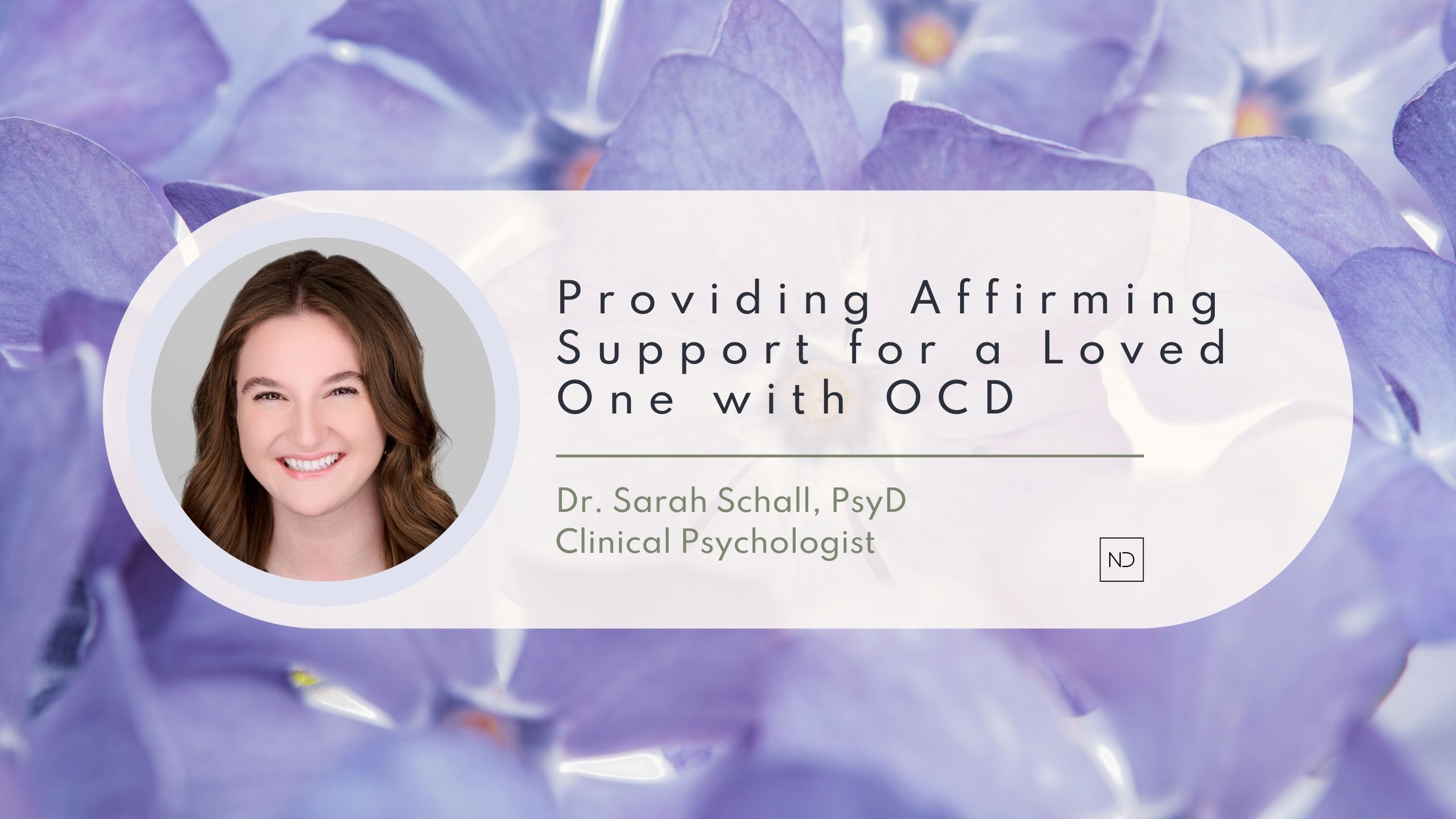
Providing affirming support for a loved one with OCD
Written by: Dr. Sarah Schall, PsyD | Clinical Psychologist
October is OCD Awareness month. According to the National Library of Medicine, approximately 1% – 3% of the global population meet criteria for OCD. While mental health awareness months have the potential to shed light on frequently misdiagnosed disorders, they can also make individuals feel pressure to justify their lived experiences.
At The Neurodivergent Collect, clients often present with Autism Spectrum Disorder (ASD) and OCD diagnosed later in life. This aligns with research that suggests a large portion of individuals with OCD also meet criteria for ASD. Upwards of 47% of individuals with OCD display clinically significant Autistic traits, with 27.8% of those individuals meeting full diagnostic criteria for ASD (Wikramanayake et al., 2018). OCD and ASD can present similarly making diagnostic evaluations challenging for clinicians less familiar with these disorders. Misdiagnosis of ASD and OCD ultimately delays access to affirming care and can leave individuals and their families feeling lost and invalidated.
Affirming Support for OCD
Affirming care is imperative when supporting a loved one navigating a mental health diagnosis such as OCD. While family, friends, and health care providers often mean well, reactions to someone disclosing their OCD diagnosis can be incredibly impactful. Below are common examples of helpful (validating) vs. unhelpful (invalidating) responses when a loved one discloses their experience with OCD.
Potentially invalidating responses:
- “I am so OCD too.”
- “How can you have OCD if you are not clean or organized?”
- “Have you tried to ignore the ‘bad” thoughts by replacing them with ‘good’ thoughts?”
- “Just don’t think about things that upset you!”
- “I wish I was more OCD as you are so successful.”
- “Having sexual thoughts is not OCD. Maybe you like those thoughts?”
- “If you are having thoughts of hurting others, how do I know you are safe?”
Potentially validating responses:
- “How can I respond when you are struggling with your OCD that would feel supportive?”
- “How can I educate myself to ensure I’m helping and not hurting your OCD recovery?”
- “I do not want to make assumptions so thank you for telling me about your experience with OCD.”
Summary:
If a loved one shares their experience with OCD, be mindful of your responses. If someone is disclosing their OCD diagnosis, it often stems from a desire to connect and feel accepted. Misdiagnoses often delay access to affirming care, however responding with empathy and validation to your loved ones’ lived experiences can be extremely powerful and healing.
…
Additional Resources:
https://iocdf.org/expert-opinions/expert-opinion-families-what-you-can-do-to-help/
https://iocdf.org/autism/
https://iocdf.org/expert-opinions/treatments-for-obsessive-compulsive-disorder-comorbid-
with-autism-spectrum-disorder/
References:
Wikramanayake WNM, Mandy W, Shahper S, Kaur S, Kolli S, Osman S, Reid J, Jefferies-Sewell K,
Fineberg NA. Autism spectrum disorders in adult outpatients with obsessive compulsive
disorder in the UK. Int J Psychiatry Clin Pract. 2018 Mar;22(1):54-62. doi:
10.1080/13651501.2017.1354029. Epub 2017 Aug 11. PMID: 28705096.
The Neurodivergent Collective works within the Neurodiversity Affirming Paradigm in all aspects of clinical work with clients. Given the nature of the medical model of diagnosis for mental health treatment, we acknowledge some language on this site reflect the medical model of frameworks. If you have questions about our treatment philosophy or practice, please let us know below.
Do you have a question?
Send us a message


